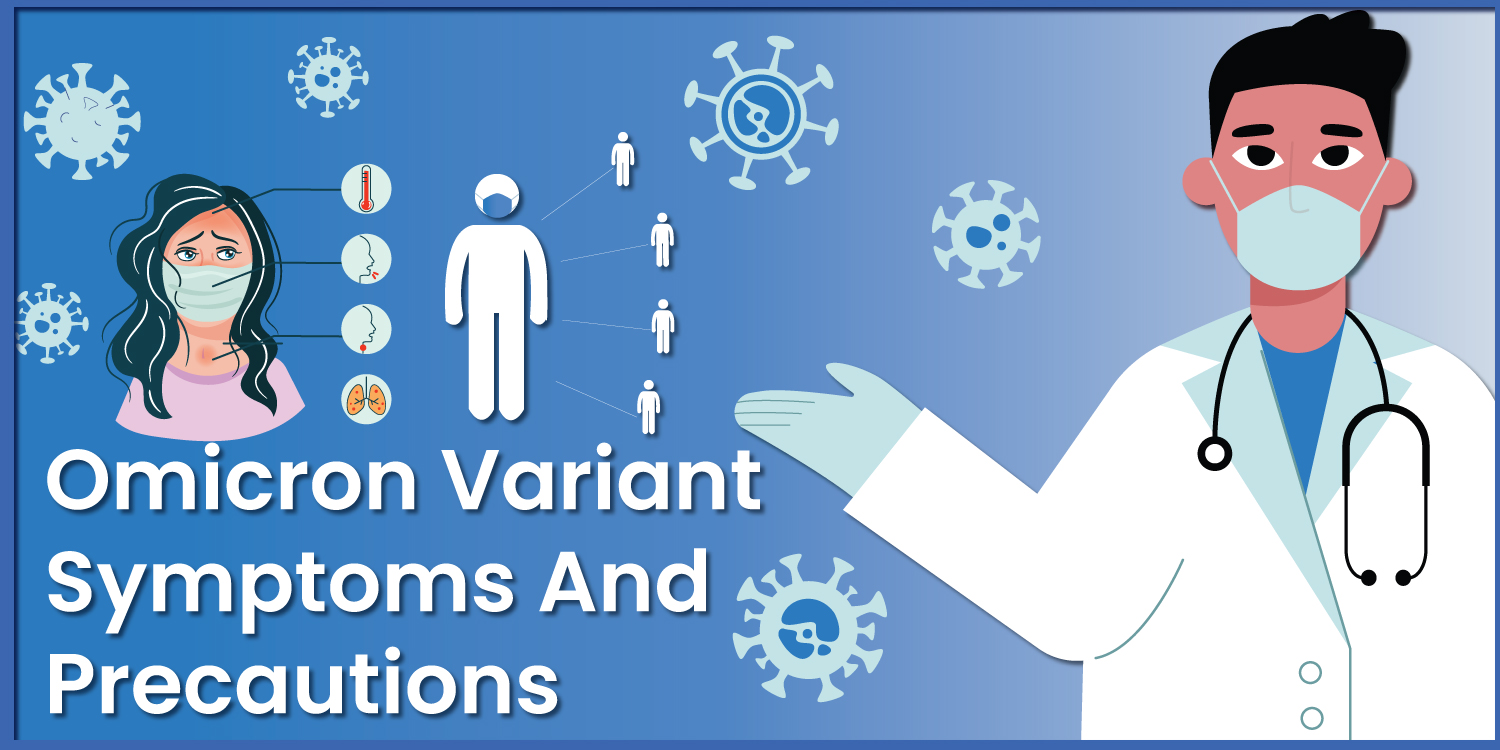Omicron COVID Variant: What are the Symptoms, Cause, Precaution & Treatment
A new variant of COVID was discovered in South Africa on Wednesday, 24 November 2021. WHO found the new version of COVID- Omicron as a serious problem by the WHO. After the discovery of a new variation of the COVID-19 virus, the whole world went into panic. This article provides you with comprehensive information about the Omicron COVID Variant.
Since its discovery in China in 2019, the SARS-CoV-2 virus, which causes Covid-19 infection, has undergone many mutations. The World Health Organization (WHO) has identified a unique mutant strain: Omicron that is widely circulating in South Africa and across the world.
What is Omicron COVID Variant?
According to the South African National Institute of Communicable Diseases (NICD), the new strain has no “significant symptomsâ€. However, as with the Delta strain, some people are still asymptomatic.
Although deletion of the S gene somehow helped in the detection of mutation early; however, “many of the targets that have been analyzed certainly remained unchanged, as per a report published by the NICD.†This resulted in the fact that this unique variant is very much unlikely to affect the complete sensitivity of the PCR assay. Another report of NICD, these PCR assays are showing at least two alternative SARS-CoV-2 targets that are acting as a backup in the case of a mutation in one,â€.
Tests to detect Omicron COVID Variant
There are two types of tests being used by the experts to detect Omicron infection:
- Nucleic Acid Amplification Assays (NAAT) and
- Antigen tests
What are the Symptoms of Omicron COVID Variant?
The symptoms of the new COVID variant “Omicron†are listed below.
1. Common symptoms
The most common symptoms of Omicron are fever, cough, tiredness and loss of taste or smell.
2. Less common symptoms
The less common symptoms of Omicron are sore throat, headache, pain, diarrhea, skin rash, discoloration of the fingers or toes, and red or irritated eyes.
3. Severe symptoms
The novel COVID variant “Omicron†causes severe symptoms such as difficulty breathing or shortness of breath, loss of speech or mobility, confusion, and chest pain.
Omicron COVID Variant Cause
Omicron is thought to be responsible for the recent rise in COVID-19 infections in Gauteng, South Africa’s most populous province, according to researchers.
On Sunday, the first Omicron case in Delhi was discovered on a returnee from Tanzania. There are currently five novel cases in India. Each individual case has shown fine signs. According to LNJP envoy Dr. Suresh Kumar, the 37-year-old woman was taken to a medical center on December 2 with a sore throat, disability and body aches.
South African experts who had previously treated Omicron patients said the differences led to a different presentation. 17 other COVID-19 patients and six contact persons who agreed to the LNJP are asymptomatic.
Omicron COVID Variant Precautions
You need to take the following steps to protect yourself and your loved ones from Omicron and all types of coronavirus:
- Maintain a physical distance of at least 1 meter between yourself and others.
- Wear a well-fitting mask.
- It is recommended to keep away from densely populated areas and travel only when absolutely necessary.
- Keep hands clean and use disinfectant.
- Squeeze into a napkin or bent into your elbow.
- Vaccinate yourself.
- Follow a nutritious diet to boost immunity.
Omicron COVID Variant Treatment
According to the World Health Organization, it is unclear whether omicron infections cause more serious illnesses than other types of infections. However, preliminary evidence suggests that the hospitalization rate is increasing in South Africa.
It is also not known how successfully the virus can overcome previous immunity or COVID-19 vaccines to cause a breakthrough infection.
Winter is a time for family, community, and repair, but this is the second year we have been asked to be vigilant. Indoor social gatherings, especially more modest ones, can be a fertile habitat for the virus to develop. Whenever possible, social gatherings and festivals should be held outdoors, and members should wear veils and follow physical removal. When organizing indoors, limiting the number of people present and ensuring adequate ventilation are essential to reduce the risk of openness.
